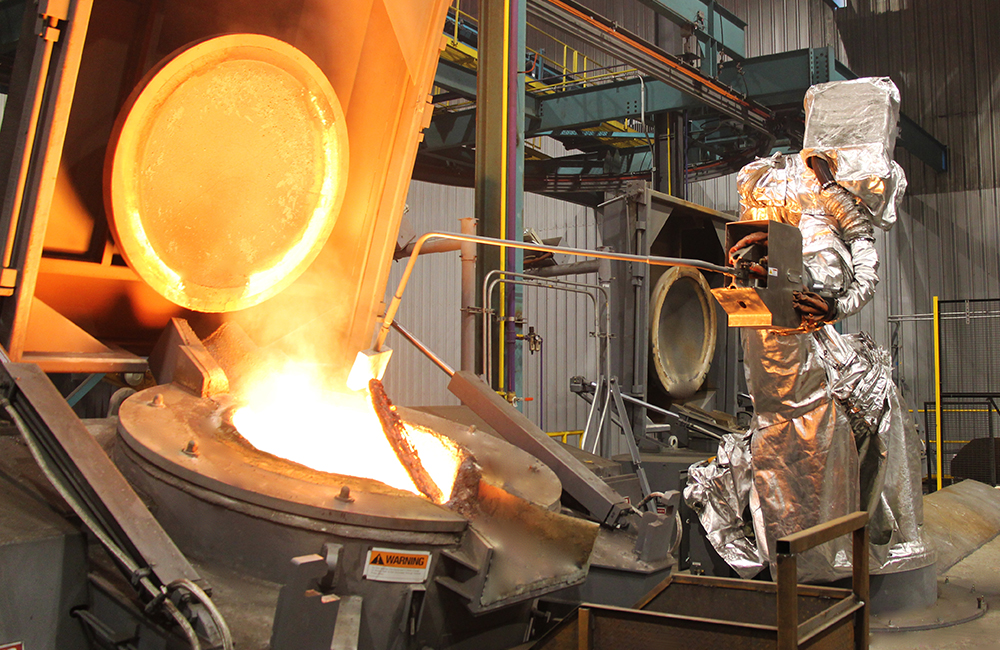
Artificial Intelligence Re-shaping the Landscape of Steel Production
As Artificial Intelligence continues to advance across the globe, various modernized countries are capitalizing on its benefits. Steel industries, which play a crucial role in a nation's economy, are also incorporating artificial intelligence into their operations to enhance their systems, maintain machinery, improve quality control, and lower production costs. It is evident that the role of AI will soon undergo significant expansion within the steel sector. The following are key areas where AI is predicting defects and aiding steel industries in enhancing product quality while reducing costs:
Smart Sensors:
Smart Sensors are used to collect data that helps in the steel-making process, from raw materials to finished goods. Now, this data could be analyzed by an AI algorithm to identify patterns and trends that can be used to improve efficiency and quality and enable seamless communication between various machines.
Operations and Maintenance:
Such tasks are mostly time-consuming and expensive but now AI could help the steel industries to reduce these costs by revealing previously hidden trends and relationships that improve predictive maintenance and equipment diagnoses.
Quality Control:
AI's impact on quality control is substantial. By analyzing the extensive data collected by plant sensors, AI algorithms can detect potential issues early on and provide recommendations for resolution, thereby minimizing defects and enhancing overall quality.
Reducing Raw Material Cost:
AI helps Steel Industries reduce raw material costs by approaching the best raw materials mix, meeting customer requirements, and achieving profitability through real-time optimization of raw materials.
According to the System Invariant Analysis Technology (SIAT), AI could predict anomalies, maintain product quality control, and provide visual inspection.
Anomaly: AI predicts machine faults, and provides solutions by identifying signs of impending failures, ultimately reducing maintenance costs, ensuring 24/7 machine monitoring, and enabling the measurement of multiple parameters simultaneously.
Product Quality Control: AI could predict the process conditions via parameters, maintain the best quality from start to finish, reduce defective products, and keep human-centered tasks under control.
Visual Inspection: Through visual inspection, AI identifies acceptable and defective products, minimizing time consumption, decreasing human-dependent errors, and enhancing quality checks.
Beyond the aforementioned software and systems, AI is revolutionizing the steel sector through various other applications:
Predicting Future Problems:
By forecasting machine failures, AI enables preemptive action, safeguarding machinery and preventing damage.
Creative Design Generation:
AI assists manufacturers in generating numerous designs for a single product, fostering innovation and efficiency.
Forecasting Raw Material Prices:
AI aids in predicting raw material prices, assisting in strategic planning and cost reduction.
Manufacturing Robots:
Robotic assistance reduces human errors, enhancing precision and efficiency in manufacturing processes.
Process Improvement:
AI-driven software aids in updating and refining current methodologies for improved productivity.
In the age of digitization and digitalization, AI's impact extends beyond just production, encompassing departments such as Supply Chain, IT, Sales, and Marketing.
Supply Chain:
AI facilitates real-time capacity forecasting, stock management, and supplier assessment, mitigating disruptions and optimizing supply chains.
IT Modernization:
AI for IT Operations (AIOPs) updates IT service management, performance analysis, anomaly detection, and causal determinism.
Sales Enhancement:
Predictive analytics powered by AI analyzes historical customer data to target potential buyers, boosting conversion rates and sales.
Marketing Advancement:
AI tools predict competitors' strategies, enabling organizations to adapt and digitally promote their products effectively.
In conclusion, the integration of Artificial Intelligence is heralding a new era for the steel industry, revolutionizing its processes and potential across various domains. As nations worldwide embrace AI's capabilities, Pakistan's steel sector stands at the threshold of a transformative journey. By harnessing the correct methods to implement AI, the steel industry in Pakistan can look forward to accelerated growth, increased operational efficiency, and a stronger competitive edge in the global market. As AI reshapes the landscape of steel production and beyond, Pakistan's steel industry has a golden opportunity to lead the charge toward a brighter and more technologically empowered future.
CITATION:
1) How ai is transforming the Steel Industry Canvass. Available at: https://www.canvass.io/post/how-ai-is-transforming-the-steel-industry.
2) Rodriguez, J. et al. (2022) Strengthening the steel industry with AI, BCG Global. BCG Global.
Available at: https://www.bcg.com/publications/2021/value-of-ai-in-steel-industry.
3) How is AI being used in the Steel & Manufacturing Industry Wizata. Available at:
https://www.wizata.com/knowledge-base/how-is-ai-being-used-in-the-steel-manufacturing.
4) Ai?Plant ? energy: Products: Daiichi Jitsugyo Asia: Machinery and Equipment Trading Company (no date) AI?Plant ? Energy | PRODUCTS | Daiichi Jitsugyo Asia | Machinery and Equipment Trading company. Available at: https://www.djkasiagroup.com/business/ai.html.
5) Simplilearn (2023) Ai in manufacturing: Here's Everything you should know, Simplilearn.com. Simplilearn. Available at: https://www.simplilearn.com/growing-role-of-ai-in-manufacturing-industry-article.
6) Discover the possibilities of Wizata: Manufacturing Software Discover the Possibilities of Wizata | Manufacturing Software. Available at: https://www.wizata.com/discover-the-possibilities-of-wizata.
7) Simplilearn (2022) The growing role of data science and AI in banking and finance, Simplilearn.com. Simplilearn. Available at: https://www.simplilearn.com/data-science-ai-role-in-banking-finance-article.
8) Gupta, S. (no date) How AI can help in reducing the raw materials cost?, LinkedIn. Available at: https://www.linkedin.com/pulse/how-ai-can-help-reducing-raw-materials-cost-shivam-gupta.
9) Materials costimizer (no date) MatSci AI. Available at: https://www.matsci.ai/solutions/materials-costimizer/.
